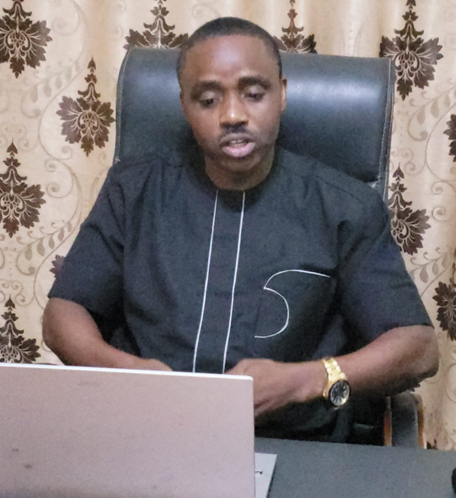
Amid escalating controversy, the Guide to Justice Action Network (GUJAN), a prominent civil society organization in Liberia, has called on the National Legislature to conduct a thorough investigation into allegations of fraud against several human rights groups involved in the war and economic crimes campaign. This comes in the wake of accusations raised during recent congressional hearings in the United States.
During the hearings on the “Next Steps Towards Accountability for War and Economic Crimes in Liberia,” several human rights advocates leveled serious allegations against Switzerland-based Civitas International, led by Alain Werner, and the Global Justice and Research Project (GJRP), headed by Hassan Bility. They also implicated the California-based Center for Justice and Accountability.
Allen White, Co-Executive Director of the Advocacy Foundation for Human Rights; Alvin Smith of the International Justice Group; and Michael Rubin, a Senior Fellow at the American Enterprise Institute, testified that these organizations had engaged in human rights fraud. The trio alleged that Werner and Bility coached witnesses to provide false testimonies against individuals, leading to their wrongful arrest and prosecution in foreign courts.
The accusations centered on cases like those of Gibril Massaquoi and Agnes Reeves Taylor, who were tried in foreign jurisdictions and ultimately acquitted due to insufficient evidence linking them to war crimes. White, Smith, and Rubin further alleged that the U.S. Ambassador-at-Large for Global Criminal Justice, Beth Van Schaack, facilitated these fraudulent activities by promoting and collaborating with Werner and Bility.
In response to these allegations, GUJAN’s Executive Director, Atty. Abraham Wheon, expressed deep concern. “The integrity of human rights organizations is paramount. If there are issues of credibility, they must be addressed thoroughly,” Wheon stated.
During the June 13 hearings, White, Smith, and Rubin recommended that Congress exclude the implicated human rights groups from any involvement in the establishment of a War and Economic Crimes Court in Liberia. They also called for the recusal of Ambassador Van Schaack from related programs.
Contrary to these claims, Elizabeth Evenson, Director of the International Justice Program at Human Rights Watch, defended the record of Civitas Maxima and GJRP. Evenson highlighted their significant achievements in campaigning against human rights violations and war crimes. Similarly, Adama Dempster of the Civil Society Network of Liberia, who has collaborated with the accused groups, expressed his concern over the allegations and called for a detailed investigation.
The congressional hearing panel showed a split in perspective. Congressman Chris Smith seemed to lend weight to the allegations against Werner and Bility, while Co-Chair James P. McGovern emphasized the importance of not making unsubstantiated accusations against absent individuals.
GUJAN is now urging the Liberian Legislature to take decisive action. “These allegations are alarming and warrant a comprehensive investigation to ensure the integrity of those involved in the war crimes court,” said Wheon. He stressed the importance of credibility in human rights advocacy, particularly in roles such as witness protection and investigative duties.
Wheon concluded by underscoring the gravity of the situation: “This is about people’s lives and reputations. We must adhere to the principle that it is better for ten guilty persons to escape than for one innocent person to suffer.”
The outcome of these calls for investigation could significantly impact the future of justice and accountability in Liberia. As the nation grapples with its troubled past, the credibility of those advocating for justice remains a critical concern.
